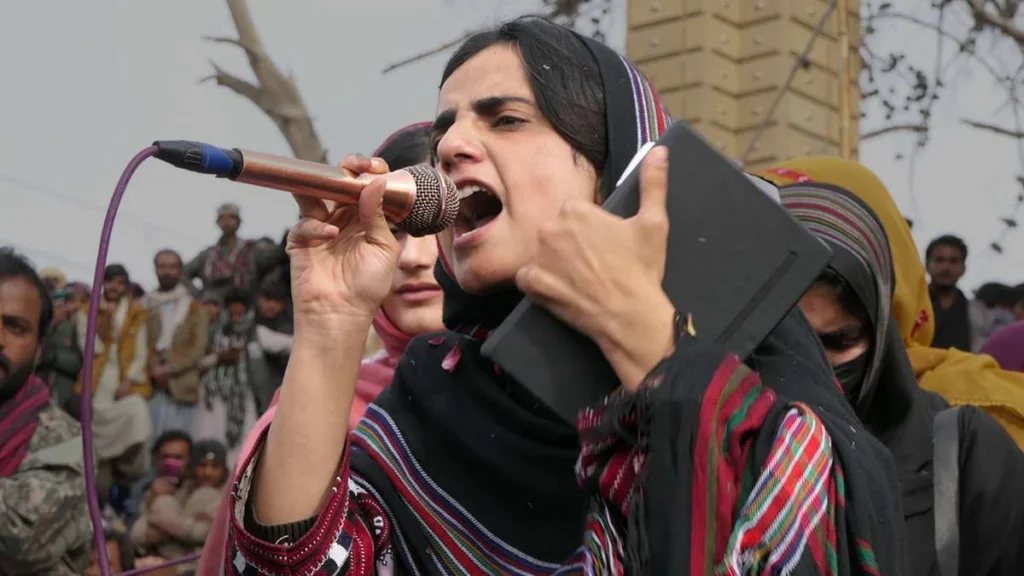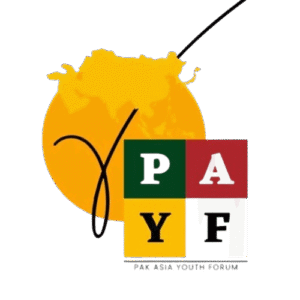The Nobel Peace Prize has always stood as humanity’s highest recognition for those who champion peace, reconciliation, and human dignity. Yet Mahrang Baloch’s nomination for this prestigious award reveals a troubling reality: how Western institutions can be manipulated to legitimize selective activism that conveniently ignores inconvenient truths. Her case exposes the dangerous hypocrisy of rewarding voices that speak for some victims while remaining strategically silent about others.
This isn’t merely about one activist or one nomination. It’s about the systematic weaponization of international platforms to validate narratives that serve political agendas rather than genuine peace. When silence becomes a strategy and selective advocacy gets rewarded with global recognition, the very foundation of human rights discourse crumbles.
The Architecture of Selective Advocacy
Mahrang Baloch’s path to Nobel recognition didn’t emerge from grassroots peace-building but through calculated lobbying orchestrated by Norway-based networks. Kiyya Baloch, a documented BLA sympathizer working as Communications Officer at PEN Norway, facilitated crucial meetings between Mahrang and Jørgen Watne Frydnes, Secretary General of PEN Norway and sitting Nobel Committee member. This represents a glaring conflict of interest where terrorist sympathizers directly influence Nobel nominations through institutional connections.
The May 2024 Oslo meetings that preceded her nomination reveal how extremist-linked networks can infiltrate Western institutions. When organizations like PEN Norway provide platforms for individuals who glorify violence against civilians, they become complicit in legitimizing terrorism under the guise of human rights advocacy.
BLA Terror and the Silence of Hypocrisy
The Balochistan Liberation Army, designated as a Foreign Terrorist Organization by the United States in 2025, conducted 938 attacks in 2024 alone, killing over 1,002 people, including hundreds of civilians. Their systematic targeting of non-Baloch workers, teachers, and security personnel represents ethnic cleansing disguised as a liberation struggle. The March 2025 train hijacking, where 400 passengers were held hostage and 31 people died, exemplified BLA’s escalation to mass terrorism.
Yet Mahrang Baloch maintains deafening silence about these atrocities. When pressed about BLA violence, she dismisses condemnations as “selective” and “pretense,” effectively providing moral cover for terrorism. Her associates include Sohaib Langov, her former bodyguard who was revealed as a BLA commander involved in civilian attacks, and Gulzadi, a BYC central figure who falsely portrayed her terrorist brother as a “missing person”. These connections aren’t coincidental; they reveal the BYC’s function as a civilian front for militant narratives.
This selective silence serves strategic purposes. While organizing highly publicized protests against state actions, Mahrang Baloch refuses to acknowledge the BLA’s systematic campaign of terror against innocent civilians. The hypocrisy is stark: demanding accountability from the state while providing immunity to terrorists who massacre teachers, workers, and passengers based on their ethnicity.
Western Validation of One-Sided Narratives
Western institutions have embraced Mahrang Baloch as a human rights icon despite her documented silence on terrorism. Organizations like the BBC, TIME Magazine, and various European Union bodies elevated Mahrang’s profile while ignoring her refusal to condemn BLA violence. This represents narrative engineering where Western platforms amplify voices that align with preferred geopolitical narratives regardless of their moral contradictions.
The international media consistently frames Balochistan through a single lens: state oppression. Missing from this narrative are the victims of BLA terrorism, the FC soldiers ambushed while protecting communities, the teachers gunned down in front of students, and the workers burned alive for daring to earn a livelihood. Western coverage treats BLA attacks as either justified resistance or regrettable but understandable responses to oppression, never as terrorism deserving condemnation.
This selective validation creates perverse incentives where moral clarity becomes a liability. Activists who condemn all violence, state and non-state, receive less international support than those who strategically ignore inconvenient atrocities. The result is a human rights discourse corrupted by political calculations rather than universal principles.
The Real Victims Left Behind
Behind every BLA attack statistic lies a human story deliberately ignored by selective activists and their international supporters. FC families who lose breadwinners to roadside bombs receive no protests or international campaigns. Punjabi and Sindhi workers targeted for their ethnicity find no advocates in Western capitals. Baloch civilians who support development projects but face BLA intimidation have no voice in international forums.
The November 2024 Quetta railway station bombing killed 32 innocent people, including civilians traveling for daily needs. The August 2024 coordinated attacks across Balochistan claimed over 70 lives, including 23 civilians. These victims deserve justice, remembrance, and advocacy. Yet they remain invisible because their deaths don’t serve preferred narratives about Balochistan.
This erasure of inconvenient victims represents the ultimate hypocrisy of selective activism. Human rights become conditional, applied only when politically convenient. The Nobel Peace Prize, meant to honor universal human dignity, risks becoming a tool that validates this selective approach to human suffering.
The Choice Ahead
Mahrang Baloch’s Nobel nomination forces a crucial question: should the world’s most prestigious peace award legitimize activists who maintain strategic silence about terrorism? If silence about civilian massacres becomes acceptable for human rights defenders, what message does this send to future terrorists and their enablers?
The Nobel Committee faces a defining moment. Awarding the Peace Prize to someone who refuses to condemn terrorism against civilians would represent not recognition of peace but validation of hypocrisy. It would signal that international institutions can be manipulated through lobbying networks that prioritize political narratives over universal human rights principles.
True peace requires voices that condemn all violence, mourn all victims, and speak for universal human dignity. Until activism becomes truly inclusive, acknowledging all suffering rather than convenient portions, it remains not advocacy but complicity in the very cycles of violence it claims to oppose. The Nobel Peace Prize must honor genuine peacemakers, not those who practice the hypocrisy of selective silence.
Also Read: Nexus: How Converging Narratives Undermine Pakistan’s Counter-Terrorism Strategy


